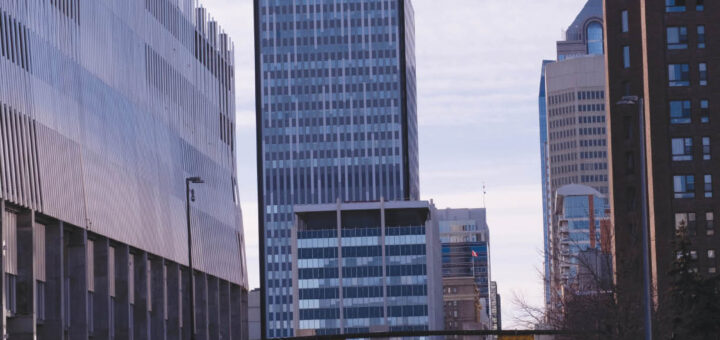New COVID-19 wave crashes into Calgary; campus moves online until Jan. 24

By Keoputhy Bunny, News Editor
Healthcare systems are overwhelmed, new COVID-19 measures are in place and schools are closing. The fifth wave is here.
At the time of writing, the World Health Organization (WHO) cites a 71 per cent increase in new cases globally and a 100 per cent increase in new cases in the Americas.
“Omicron is hospitalizing people and it is killing people,” said WHO Director-General Tedros Adhanom Ghebreyesus. He stated that while the COVID-19 variant may appear less severe compared to the Delta variant, “it does not mean it should be categorized as mild.”
Ghebreyesus isn’t the only one who is worried about the effects of the latest variant. Calgary’s department head of emergency medicine, Dr. Eddy Lang is also concerned about the upcoming strain on the healthcare system.
“The Omicron variant is rampant at this point in time,” Lang told CBC.
Lang also stressed that people coming into the emergency centres to test for COVID-19 are taking precious time and resources from people who really need it.
Cases are surging in Canada but the lack of rapid antigen test kits and long waits for polymerase chain reaction (PCR) tests means people are heading to urgent care centres to get tested.
In fact, the Alberta government website states that PCR testing is only available for people at high risk of severe outcomes or work in high-risk settings and only if they get a positive result on a rapid antigen test.
But at the time of writing, a quick check for the rapid antigen tests on their interactive map comes up with no results; there are none available. Even if they were available, there’s no current system to even log positive results.
As for Mount Royal University (MRU), the administration seems to be following the “wait and see” principle of other post-secondary institutions like the University of Calgary, University of Alberta and University of Lethbridge.
On the afternoon of Dec. 22, an email was sent out by President and Vice-Chancellor Tim Rahilly letting MRU students know that the start of the winter semester was to be held online for a majority of the classes. The classes will be online until Jan. 22 at the earliest.
Students should expect an update from the university on Jan. 22 as more information becomes available.
“Starting the semester online will allow us the time we need to assess the new variant’s impact, particularly after the holiday season. By reducing the number of people on our campus, we can allow the learning activities that must be in person to continue,” the email read.
An email sent out later on Jan. 3 stated that despite the fact that in-person classes would resume on Jan. 24, services such as the Riddell Library & Learning Centre and the MRU Recreation are open starting Jan. 4.
Aside from the restrictions announced in late December, there have been no new restrictions from the government of Alberta.
However, other provinces have released new restrictions to combat the fifth wave. Quebec’s indoor dining, concert halls and gyms are closed and a curfew is enforced from 10 p.m. to 5 a.m. In Ontario, restaurants, concerts and gyms are closed.
Federal Health Minister Jean-Yves Duclos mentioned that the only way out of the pandemic is through vaccination. “That’s why I’m signalling this is a conversation which I believe provinces and territories, in support with the federal government, will want to have over the next weeks and months,” he said to reporters during a federal COVID-19 briefing.
Premier Jason Kenney responded to the comment promptly, stating: “Alberta’s Legislature removed the power of mandatory vaccination from the Public Health Act last year and will not revisit that decision, period.”






